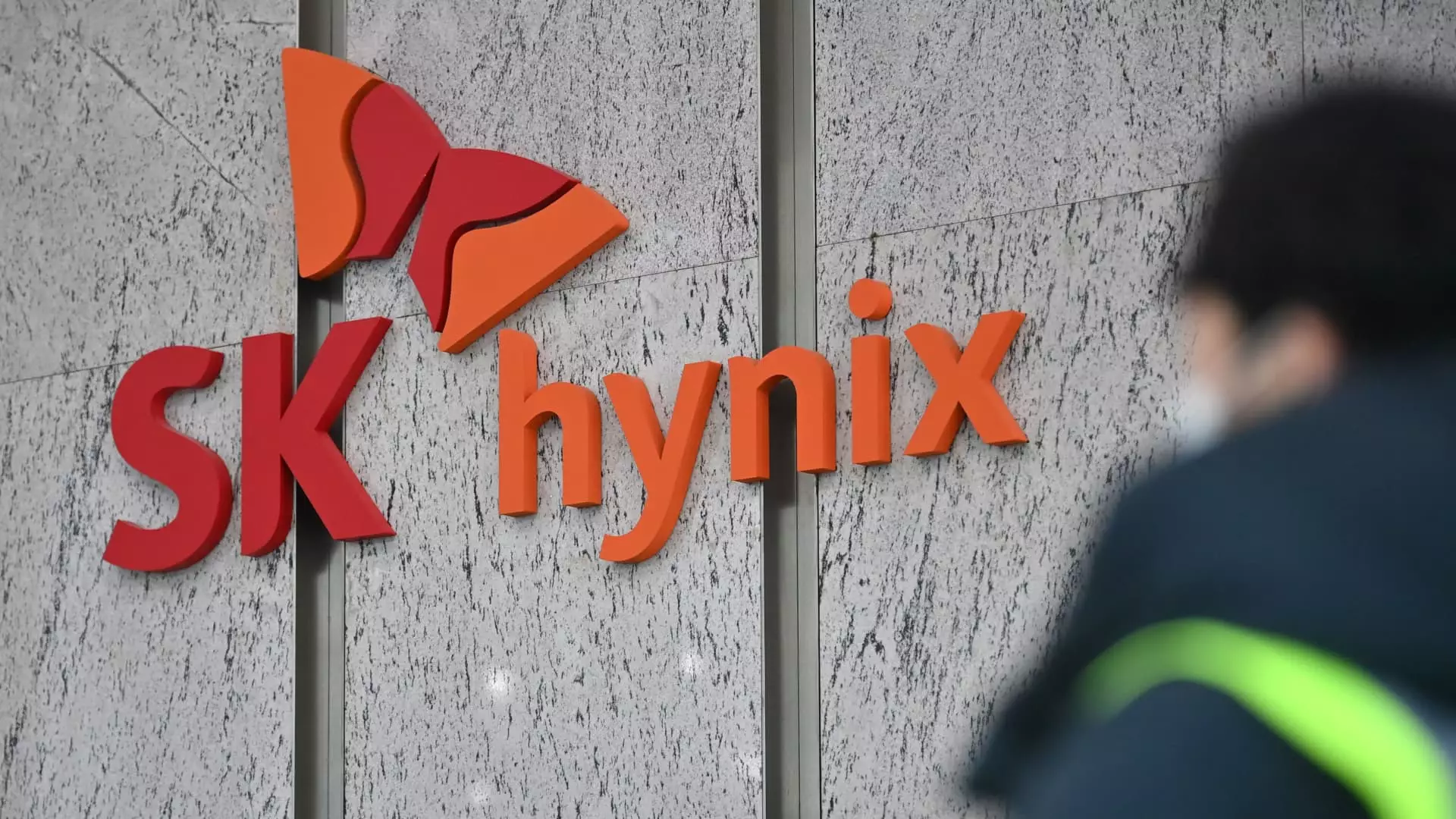SK Hynix, a global leader in memory chip manufacturing, announced its second-quarter profits, reaching the highest level in six years. The company’s revenue amounted to 16.42 trillion Korean won, surpassing expectations, with an operating profit of 5.47 trillion Korean won. This remarkable performance was attributed to the growing demand for advanced memory chips essential for artificial intelligence computing.
SK Hynix noted a significant increase in overall prices of its memory products, thanks to the strong demand for AI memory, including high-bandwidth memory. This surge in demand led to a 32% rise in revenue compared to the previous quarter. The company supplies high-bandwidth memory chips to key players in the industry, such as Nvidia, catering to AI chipsets.
Despite the positive earnings report, SK Hynix experienced a decline in its stock value, following a broader sell-off in U.S. tech stocks. The company remains optimistic about the future, citing the expected continued demand for AI servers in the second half of the year. Additionally, the launch of AI-enabled PC and mobile devices is anticipated to contribute to the gradual recovery of conventional markets.
To capitalize on the strong demand for AI memory, SK Hynix revealed its plans to mass-produce 12-layer HBM3E products, aiming to maintain its leadership in the market. The company expects to begin mass production this quarter and ship to customers by the fourth quarter. However, the expansion of HBM capacity poses challenges, as it requires more wafer capacity than regular DRAM products, leading to tight supply conditions.
Analysts forecast a continuation of the tight supply situation for high-bandwidth memory chips due to the increasing demand driven by AI adoption. SK Hynix has been at the forefront of the high-bandwidth memory chip market, facing competition from rivals like Samsung. The company expects to introduce the next-generation 12-layer HBM4 in the second half of 2025, aiming to stay ahead in the market.
SK Hynix’s record-breaking profits in the second quarter underscore the growing importance of advanced memory chips in the era of artificial intelligence. The company’s strategic focus on high-bandwidth memory products aligns with the increasing demand from AI applications. As the industry continues to evolve, SK Hynix remains committed to innovation and expansion to maintain its competitive edge in the market.


Leave a Reply
You must be logged in to post a comment.